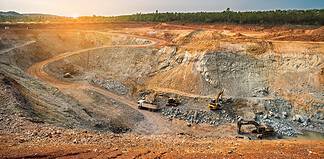 CLIVE Palmer has refused to support the repeal of the mining tax unless the Abbott Government makes some major concessions.
CLIVE Palmer has refused to support the repeal of the mining tax unless the Abbott Government makes some major concessions.
The move came just weeks after Mr Palmer abruptly withdrew his party’s support of the carbon tax repeal to secure a number of amendments.
While the Abbott Government intends to axe any measure funded by the mining tax, the Palmer United Party is demanding it keep the low-income superannuation contribution, the income support bonus and the SchoolKids bonus, worth a combined $9 billion in the forward estimates.
Palmer United Senate leader Glenn Lazarus said that unless the measures – worth $2.4 billion this financial year – were kept, his party would not back the repeal of the tax.
Given the hostile nature of the Senate, the government cannot repeal either the mining or the carbon tax without support from three Palmer United senators and their allied Motoring Enthusiast Party senator.
According to media reports, Mr Palmer expected the mining tax bill would be split to allow the tax to be removed while keeping the spending associated with it. The government had indicated it would stand by its previous claim that all measures funded by the tax would be axed, although after the deals made by Palmer United in regards to the repeal of the carbon tax, there has been speculation that Mr Palmer may work another deal to get his way again.
WA Chamber of Commerce and Industry chief executive Deidre Willmott said the mining tax needed to be abolished.
“We’re very disappointed by this development [of the repeal being blocked],” she said.
“WA mining companies have been working on the basis that the mining tax would be repealed as soon as possible. “This was a promise of the coalition parties and [Palmer United], so we expect that promise to be honoured.”
The deal made by Palmer United for the repeal of the carbon tax has set a precedent rarely seen. Under the new repeal bill, it would be a legal requirement for about 60 electricity and gas companies to pass on savings from the repeal to customers, facing fines of up to 250 per cent of the saving withheld if they failed to do so.
“Palmer United supports the bill and the amendment which will be brought forward in the detailed consideration of the bill,” Mr Palmer told Parliament.
“For Australia to act alone and impose a tax on carbon at this time is only sought to place tax on jobs and discourage investments.
“The cost of energy for all Australians shows a lack of confidence in our community for investment, for growth, to allow business to employ more people and allow economic stimulation to be undertaken.”
Environment minister Greg Hunt told Parliament that Australians had made it very clear through their votes at the Federal Election that they did not want to have a carbon tax.
“The Australian people voted in the most express, clear and absolute way to ensure that…they would have a government that would take real measures to reduce emissions without a carbon tax,” he said.
“The carbon tax increased the price of everything it touched; it punishes households, businesses, schools, hospitals, nursing homes, charities, churches, council swimming pools and community centres.
“It hits each and every group and individual who uses energy. And that was always its goal, to make electricity and gas more expensive.
“It is now up to this parliament to show that it has listened to the Australian people.”
Mr Abbott has claimed that every day a vote on the carbon tax was delayed, it cost Australian families $11 million. In addition to his hard on the carbon and mining taxes, Mr Palmer became embroiled in financial advice laws, striking an eleventh hour deal that drew criticism for increasing red tape and diminishing the rights of investors.
The newly passed financial planning would allow financial planners associated with banks to continue to receive payments for directing customers towards the banks’ own products, prompting Opposition Leader Bill Shorten to claim that Prime Minister Tony Abbott was putting the interests of Palmer United ahead of Australian investors.
Mr Abbott also faced criticism for back flipping on a pre-election promise to not make deals with minor parties. At the time of print, only one element of the government’s $40 billion worth of budget reforms had made it through Senate.











































